Last updated on October 30th, 2024 at 01:57 pm
“I don’t like being around people!”
There could be many reasons you say, “I don’t like being around people”. However, feeling like you don’t want to be around people makes it difficult to socialize and create relationships. This alone can even be overwhelming, taking a toll on a person’s mental health.
Now, if you’ve ever felt confused about why you don’t like being around people, or want to move beyond the sore feelings, maybe you’ll find answers in the 21 reasons we have here.
Most importantly, we’ll dive into some coping strategies that can help people move beyond not wanting to be around people.
Understanding the Statement: “I don’t like being about people”
When someone declares, “I don’t like being about people,” it’s a statement laden with personal nuances and societal implications.
Such a feeling often stems from an overwhelming sense of discomfort or anxiety in social settings, known as social anxiety. But it can also be linked to a personal preference for solitude and introspection.
The motives behind this sentiment can be multifaceted and compelling:
- Social Anxiety: For some, engaging with people can be an exhausting and anxiety-inducing experience. The fear of being judged or misunderstood may dominate their thoughts, leading them to avoid social situations altogether. This can easily get you to think “I don’t want to be around people”.
- Love for Solitude: On the other hand, the statement could reflect a preference for solitude, where individuals find peace and clarity in their own company. They might see solitary time as a haven for creativity and self-discovery, away from the distractions and demands of social interactions.
In either case, the reluctance to be around people is not merely a superficial preference; it’s a profound aspect of one’s personality and emotional world.
Whether driven by anxiety or a deep-seated love for solitude, the statement opens a window into the speaker’s inner life, inviting us to understand and empathize with their unique human experience.
Now that we’ve scratched the surface of this complex feeling, it’s time to delve even deeper.
In the following sections, the post will discuss 21 specific reasons that might drive someone to say, “I don’t like being about people,” exploring a broad spectrum of psychological, social, and personal factors that contribute to this sentiment.
1. Anxiety feels like, “I don’t like being around people”
Do you purposely avoid people or become very anxious in different social situations?
If it’s hard to take part in simple social activities such as easy small talk with people at work, at family events, or at school, you may want to consider you may have a social anxiety disorder.
Take a quiz to learn more about your social anxiety. Answer a few questions and get immediate results and recommendations.
Also, social anxiety disorder (also called social phobia) is a mental health condition. Here is more information here at the National Institute of Mental Health.
Social anxiety disorder can make it difficult to be around people. It’s a fear that can affect all everyday activities and relationships with people. However, you can overcome the challenge of social anxiety.
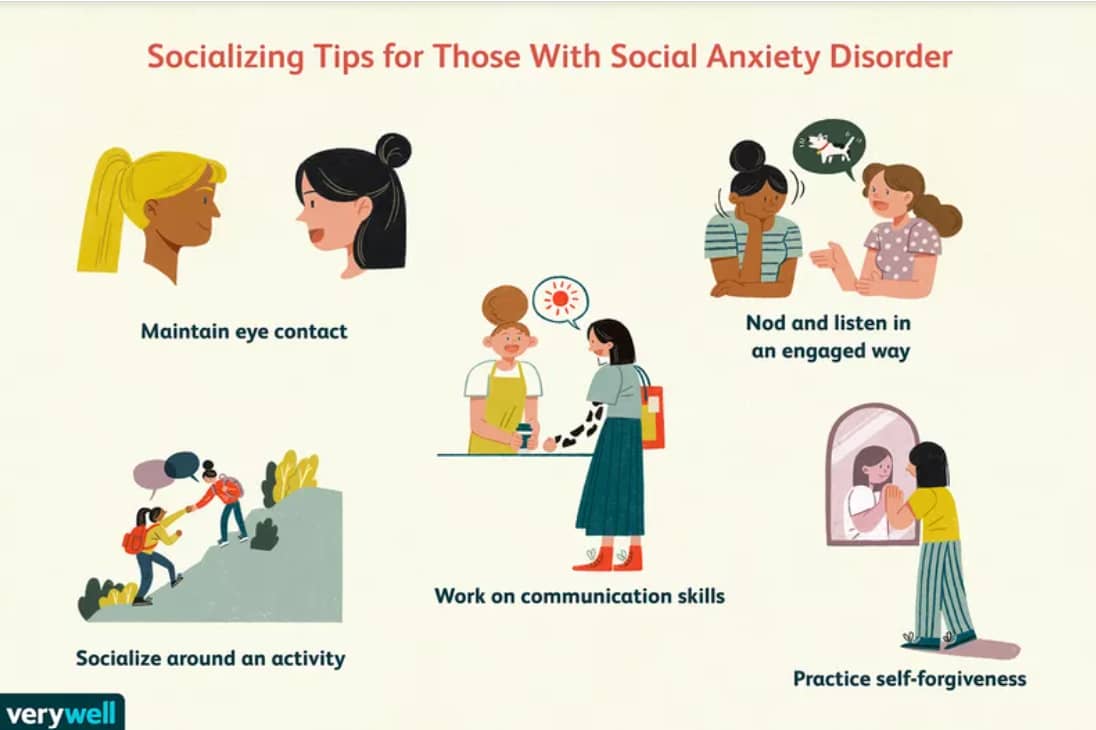
2. You don’t want to be around your social circle
Sometimes we get caught up in other people’s lives and what they want. However, once you become aware you’re in a one-sided relationship, reconsider the friendship or your expectations.
Friends should make you feel good, inspired, and put you in a good mood. If you feel terrible after a meet-up, it’s time to re-evaluate the benefits you’re getting from a particular friendship.
Get Free Tools to Improve Your Social Skills
Conversation starters, best questions to ask, how to deal with anxiety, and more
3. Meeting people is hard, so you hate socializing
It can be hard to meet new people even when we all have technology at the tips of our hands. Meeting people is hard, especially if you have some social challenges. But not meeting the right people could be a significant reason you say, “I don’t like being around people!”
Signs you’re not meeting the right people:
- You don’t feel any connection
- Can’t find things in common
- Bored with the conversation
- The conversation isn’t equal or on the same level
- Not motivated to hand with that person or group
** A few places you might find people so you can thrive socially:
- Meetup.com
- Comic-Con
- Cooking Class
- Sport meet up (kickball, frisbee, etc)
- Wine tasting class
- Online Friend Groups
- Dog parks
- Eventbrite.com
Think about the hobbies you have and check out if there are any groups or events related to them.
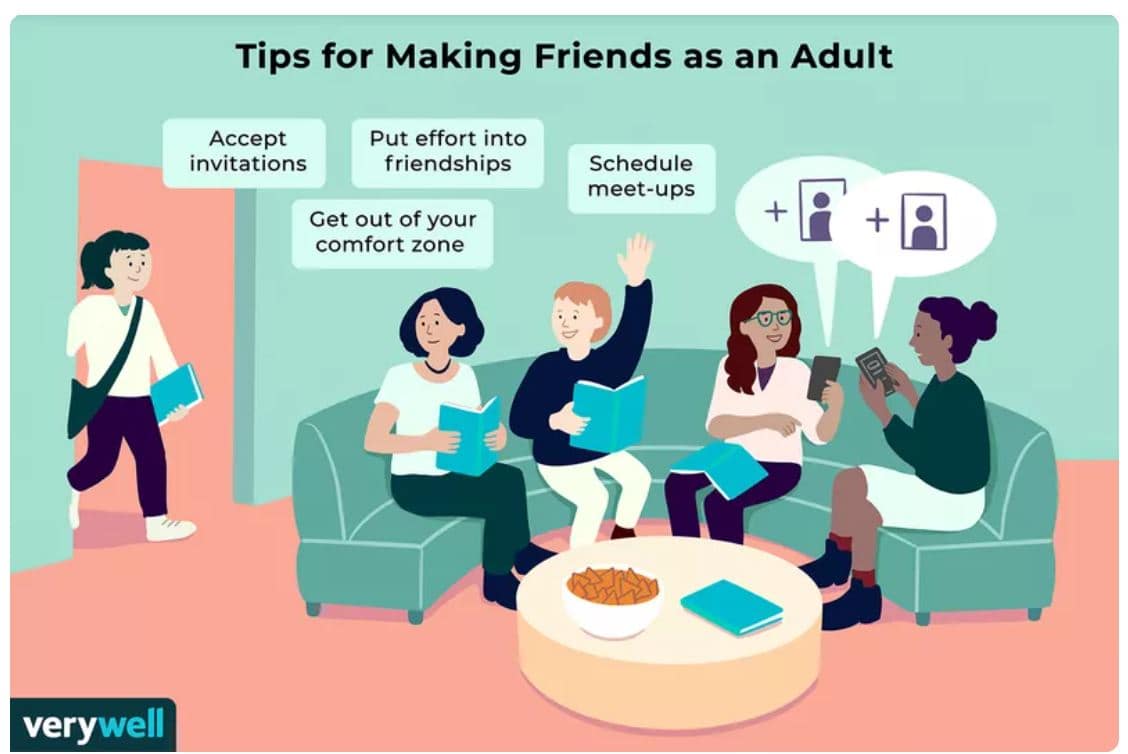
4. Depression sidelines you from social activities
“I don’t want to be around people”. Having no desire to be around anyone can be caused by depression. It can weigh you down, preventing you from socializing. Take a test here to learn more about your depression.
Depression can make it difficult to meet new friends and hold on to close relationships. The fear of socializing with people results in missed opportunities to expand your network and develop quality relationships with people.
When you feel like you’re missing out and don’t have people in your life, you may angry, hopeless, sad, and frustrated, which can lead to becoming depressed.
Many people believe social anxiety can cause depression and could potentially worsen a social phobia. Don’t let depression and social challenges sideline you from day-to-day activities, you can get help and improve socially.
5. You’re an introvert who struggles around people
Some people are outgoing while others choose to keep to themselves. If you’re an introvert, socializing can be draining. There may be many days you’re overwhelmed by socializing too much and don’t have time to recharge.
Social events for introverts can be uncomfortable because on-the-spot communication is hard to do. Introverts take more time to process what they want to say in most situations such as meetings, interviews, and casual conversations.
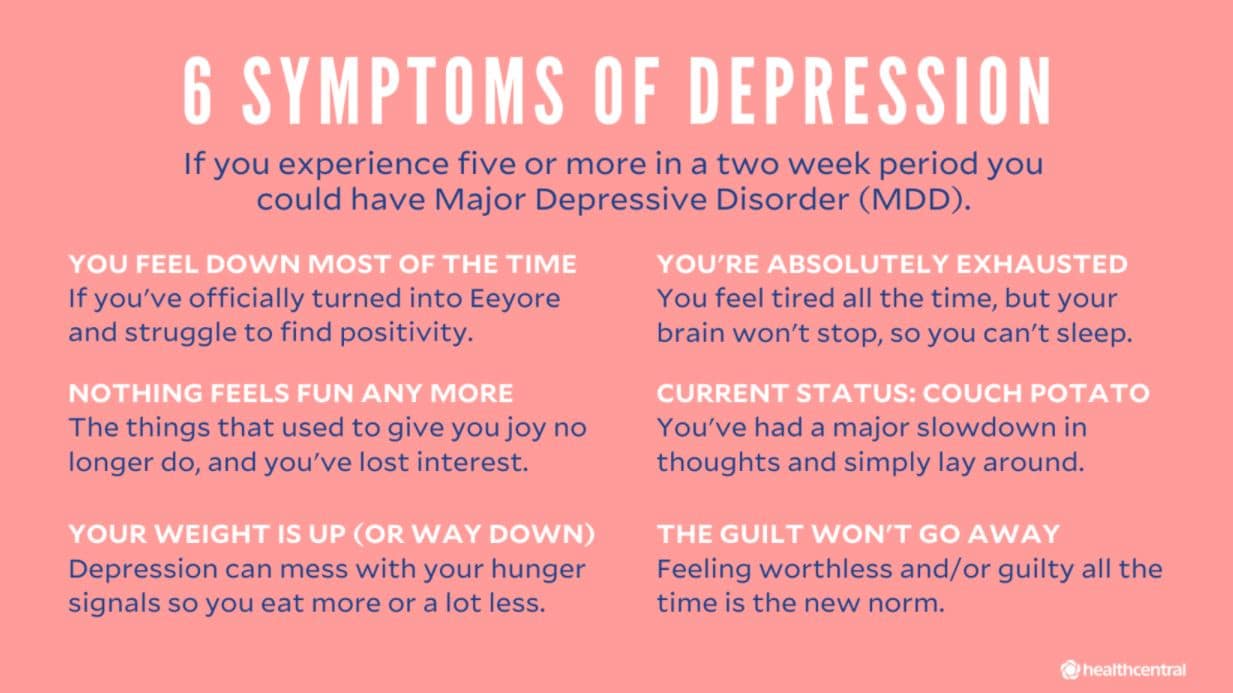
6. You need to recharge longer before socializing more
Some people feel overstimulated when socializing. The best thing to do is recharge the social battery. If not, there could be some negative effects without “recharging”.
If you’re overwhelmed by being around people take space from or spend time alone. Mental and emotional tiredness is real which can lead to not wanting to socialize. Depression is serious, if you think you might have depression, sign up to take the test here.
7. It’s hard to find people you’re compatible with
Finding “your crew” you like and want to be around can be difficult. We all want someone or a group to truly get us and are on the same wavelength.
If you have a consistent feeling of never feeling like you’ve found friends you enjoy being around, we talk more about how to make friends you truly vibe with.
Meet like-minded people by attending a class or meetup with people who share your interests or hobbies.
8. You enjoy being alone and that’s important to know
Being alone can feel good.
And we agree it can be draining if you’re always connecting with other people. If you’re alone, you can take time for yourself away from the job of socializing.
Also, you might be making a lot of compromises and you don’t realize it. Sometimes when we’re around others we might compromise our plans or comfort. So, a nice night or weekend to yourself might be all you need.
Once you’re alone, the only person’s happiness you have to worry about is your own.
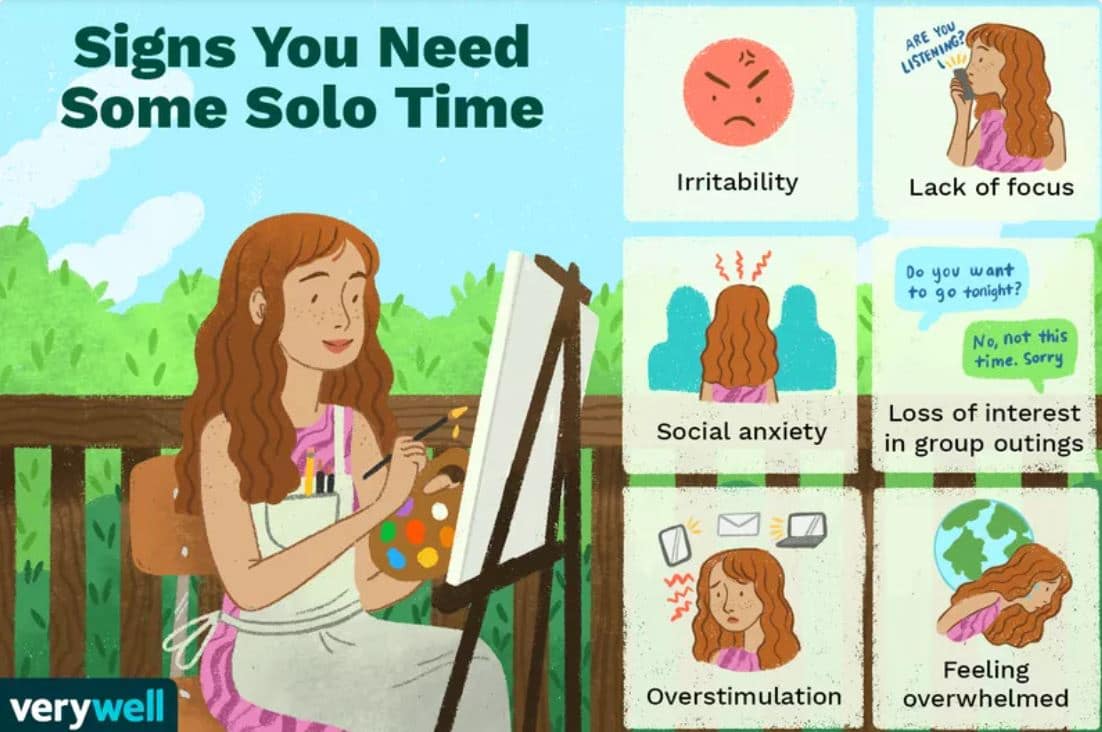
10. You’re not good at socializing … yet …
If you feel uncomfortable socializing that’s ok. However, your discomfort could be holding you back from your social life. You might think you don’t like being around people but you might be feeling insecure about how you talk to people and you believe you’re not good enough to start a conversation with people.
If you feel this way check out our post How to start a conversation using 15 charming strategies. This post gives you ideas on you can more easily start conversations with people.
You can do this!
Get Free Tools to Improve Your Social Skills
Conversation starters, best questions to ask, how to deal with anxiety, and more
9. You’ve had bad past social experiences
Having bad social experiences can scare you from socializing more.
Maybe you’ve had clingy friends or someone took advantage of you. Or, maybe you’re scared of being judged and rejected. Whatever might have happened, socializing means allowing people to get to know you as a person and opening up.
Allowing people into your world can be scary because you don’t them to reject you or experience the same past trauma. If you think you have trauma, think about working with a professional to feel better here.
11. Low self-worth is, “I don’t like being around people”
Some believe hating people comes from hating yourself.
If you don’t like yourself, and you’re feeling like shit, you’ll have an easy time finding flaws in yourself and in others. You’ll also likely manufacture anxiety. If you’re not feeling good about yourself or the people around you, there’s a chance you don’t have a lot of friends.
People with high self-esteem make others feel good. If you’re feeling low, get some help, and improve how you feel towards yourself and others. Again, feeling low and worthless can be a symptom of depression. Take a test here to learn more.
12. Having a toxic friend can make you feel anxious
Friends are an important part of our emotional well-being. Ideally, they help us feel loved and understood. But it’s important to realize, people in a toxic group are more likely to act in toxic ways, even if it’s not consistent with how they would act on their own.
Investing time and energy in a toxic friend can have negative effects on your overall life, but dealing with a group of toxic friends is even worse. If you hate being around people, look at the people you’re with. Maybe they’re toxic and you’re being influenced.
If you’re feeling anxious, take a test to understand and learn about help.
A survey by TODAY.com and SELF magazine says:
84% of women — and 75% of men — said they’d had a toxic friend at some point, with 1 in 3 survey takers fess up to a toxic BFF.
The reason it’s hard to dump a toxic friend is the same reason people stay in all kinds of dysfunctional relationships,” says Dr. Gail Saltz, associate professor of psychiatry at New York-Presbyterian Hospital.
There’s something in it that you find compelling or familiar.
13. You hate boring conversations and small talk
Some people hate small talk because they think it’s a waste of time. Others may hate it because they’re just not good at it. Maybe small talk drains you and you have limited energy to give to people. All of these are reasons people want to stay at home or leave parties early.
Many introverts are famous for this behavior, however, we have a full guide on how you can enjoy small talk or at least improve so you get what you need out of a conversation too.
You can learn how to move the conversation from small talk to a deeper more meaningful conversation.
14. Past trauma keeps you from socializing more
Some people with social phobia also have a history of being bullied, rejected, or ignored. These experiences can affect your self-esteem, and self-confidence and trigger depression later in life, also making you feel like you have no desire to be around anyone. If you’re worried you might be depressed, take a quiz to find out if you are.
Living with unresolved trauma will most likely bring a lot of bad behaviors to your relationships that are not healthy for any relationship. If you don’t deal with your trauma, you’ll have a difficult time being around people and having a happy social life.
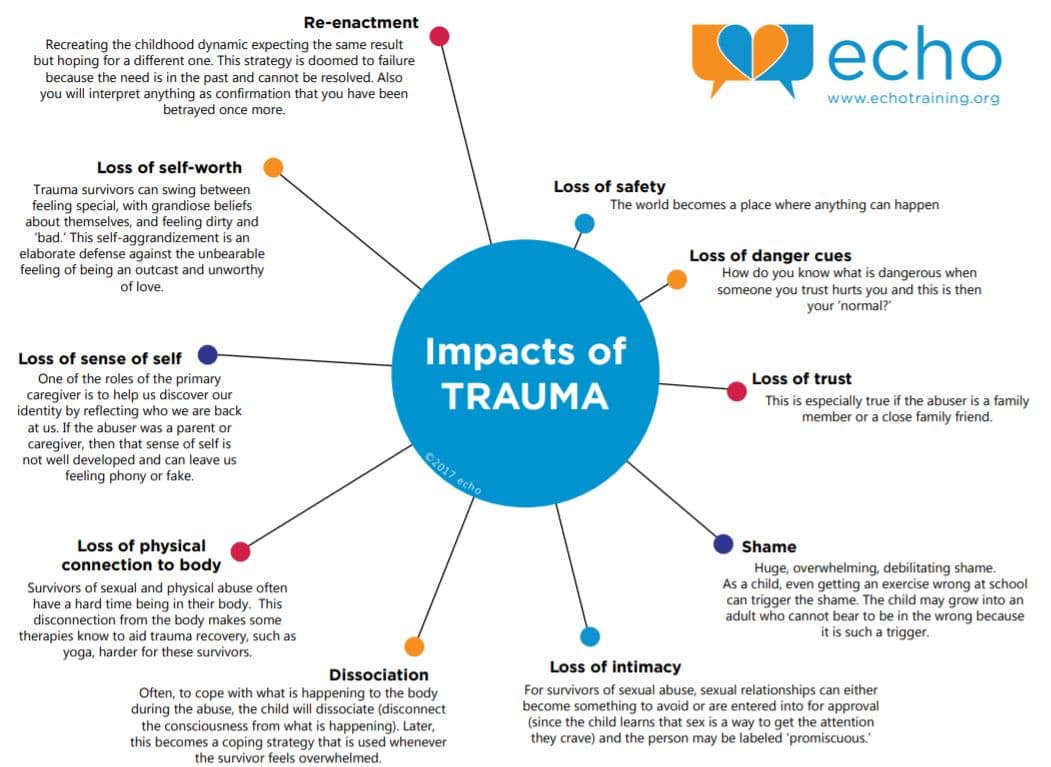
15. You expect people to be perfect but it’s unrealistic
People are messy and imperfect. If you want to be with someone who always says the right thing or agrees with you, then you’re setting yourself up for failure and you’ll never be satisfied. There are things you have to expect if you’re going to be successful socially.
Have you ever considered how expecting others to be “perfect” would work out?
“John was supposed to call me but backed out at the last minute.” I’m so disappointed in him.”
“Emily and I had plans for dinner but she canceled. I’ll never ask her for anything again.”
If you have these expectations, think about being more forgiving, open-minded, and at peace with how things happen sometimes.
16. You can’t be yourself around other people
Sometimes we feel like we can’t be ourselves around others. Maybe there’s a part of you that thinks people wouldn’t like the real you. If you pretend to be someone else, it can be exhausting, so you wonder what’s the point of socializing.
Again, as we’ve already said, maybe you also just need a genuine connection with people you’re more compatible with.
Another reason is that deep down you’re not really sure who you are, spending too much of your life shifting ourselves to match what others want.
17. You try to control people but feels impossible
Many people try to control others because they’re anxious. Some people believe if they’re not controlling the environment around them, things won’t be how they want.
If you’re in a social situation and feel you can’t control what’s around you, this could be the main reason you hate being around people. Feeling out of control can make most of us feel extremely anxious. But, it’s impossible to control every person or situation in your life.
Some signs of being a controlling person:
- You want to upstage people
- They want to be in the limelight
- Demand to know what a person is doing at all times
NYC Clinical Psychologist, Dr. Sasha Hernandez, explains,
When people present as socially domineering, it’s often related to some underlying issue.
For example, individuals who were not able to have agency over themselves in the past are more likely to exert a need for control in other situations, such as social interactions. Insecurity, anxiety, and trauma are also antecedents for social control.
18. You’re really stressed out and need self-care
Burnout can creep up. You might not know it’s happening, even if someone tells you, but stress can cause you to behave differently than you normally would.
Here is some research from Meghan Meyer, Assistant Professor of Psychological and Brain Sciences, Director of Dartmouth Social Neuroscience Lab, to give more perspective:
“Our findings show that people who experienced more stress on one day, socialized less with others the next day. This effect may persist for up to two days later after someone has had a stressful day.”
Another great way to self-care is by working with a therapist. They listen and have no judgment. Learn more here.
19. You’re around people who have annoying habits
Have you ever been around people who are overly depressing, talk excessively, are condescending, or are very insincere? Yep, most of us have had at least one of these experiences. Some of us cringe and then run for the nearest exit.
In a study at UCLA, it was discovered people based their perception of likability on more than 500 descriptions. The top-rated descriptors were sincerity, transparency, and empathy (understanding people).
These adjectives, describe people who have emotional intelligence, nothing to do with being intelligent, or attractive.
20. Setting boundaries with people is hard for you
We’ve all been people, pleasers, at some point in our lives. Helping is a great trait, however, you might be creating stress for yourself because you don’t want to hurt people’s feelings.
But setting boundaries will save you time and social energy. There’s no need to drain your emotional, mental, and physical energy on one or a few people.
Many Psychologists agree a lack of boundaries with people can lead to emotional and physical fatigue.
Stop giving so much of yourself to people who pull you into their exhausting behaviors.
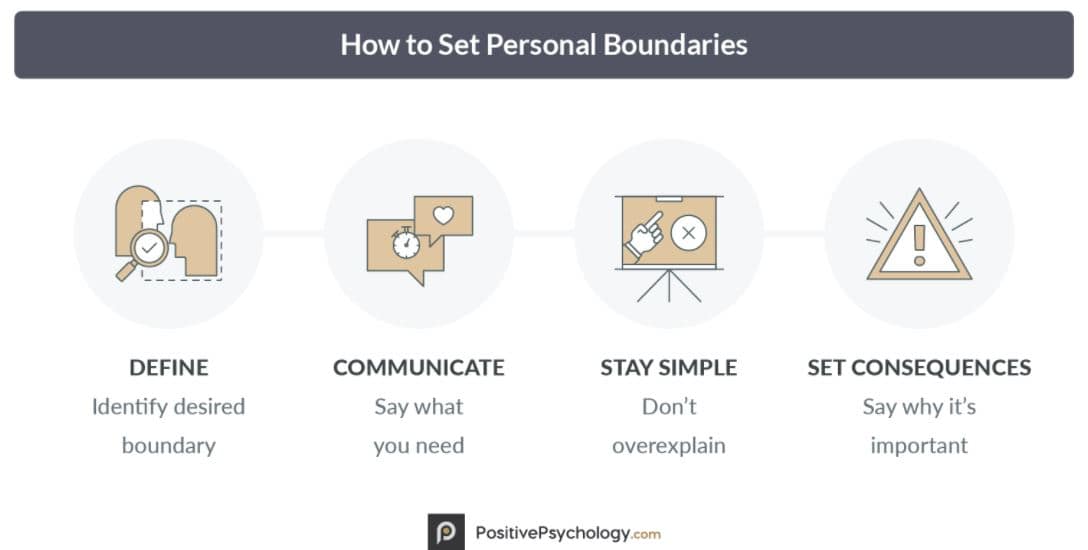
21. You’re insecurities and anger are besting you
Having no desire to be around people can surface because you’re highly insecure. Maybe even this sentence makes you feel uncomfortable or angry.
Often, people compare themselves to others, especially if they feel the other person is “better” than them, competing, or have something they want. Jealousy erupts, negative things are said, then anxiety is projected onto others.
Be careful because depression and anxiety can take over your life. Don’t let your insecurities get the best of you.
Dealing with people you don’t like being around
If you have to work with an annoying colleague, have excruciating small talk, or deal with family members at holiday events, please know there is hope.
You can learn, if you want, to be around people you don’t like and interact with them.
Work with a professional
Many people can’t improve socially without help because without understanding why they get mad or have an insane amount of impatience when around certain people. Identifying what’s bothering you is one of the first steps in understanding why you feel what you’re feeling.
So definitely try talking to a therapist or some type of professional who can help you move forward with emotional intelligence. Even if you’ve had a bad experience in the past with therapy, give it another try because there are different forms of therapy or help.
What else can you do right now?
If you feel like your social skills keep getting worse, or feeling depressed, talk to a close friend or a professional counselor about the feelings you have.
Or, you can prepare more when you go out to socialize. Joining our community and Download our Tool Kit for free (mini-course, social blueprint, and more)
We think if you join our community, take our course, or just read a few more blog posts, you won’t be saying, “I don’t like being around people”, or “I don’t want to be around people”. But you’ll feel more confident, learn a few more social techniques and how to set boundaries.
You got this!
Get 8 Free Tools to be help you be less socially anxious
Subscribe to our community and get a HUGE discount on our course, Next Level Conversation
